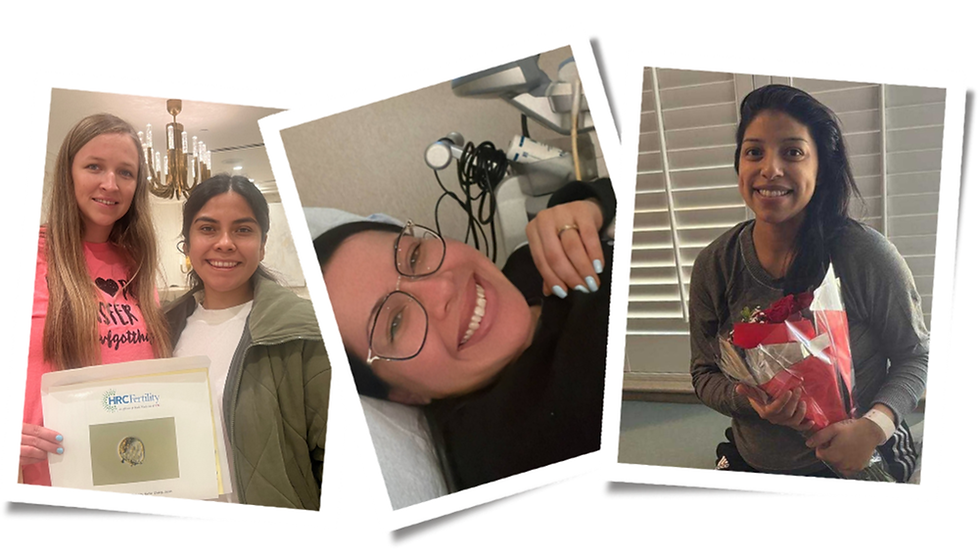


What It Takes to Become a Surrogate
Becoming a surrogate is a one-of-a-kind experience with Giving Tree Surrogacy & Egg Donation because of our requirements and support. Deciding to be a surrogate, also known as a gestational carrier, is a noble decision, but health is always our number one concern. Just as we screen intended parents for criminal background and mental fitness, gestational carriers must also go through a screening process.
Each agency has their own requirements equal to or more strict than guidelines set by the American Society for Reproductive Medicine (ASRM). The reproductive endocrinologist (RE) who transfers the embryo can also have their own thoughts on what makes a good surrogate candidate, so agencies typically take the RE's requirements into consideration.

Learn What’s Required to Become a Surrogate
If you're considering becoming a surrogate, here's what we look for:
-
Have had at least one healthy full-term pregnancy with no complications and documented medical records.
-
Are currently raising at least one child in the home.
-
Must be between the ages of 21 and 38.
-
Have a healthy height-weight ratio with a BMI no higher than 32.
-
Must be a citizen or legal permanent resident of the United States. If a legal resident, you must provide documentation that is valid for at least 2 years.
-
Must reside in the United States in a state that is surrogacy friendly (at this time, we are not accepting surrogates who reside in Louisiana, Nebraska, or outside of the United States).
-
Must be a non-smoker in excellent health.
-
Must not have a history of alcohol or substance abuse.
-
Must have a strong support system including the support of her spouse/partner if she is married or in a relationship.
-
Must be willing to undergo a criminal background check (if married, your partner or spouse must also be willing to complete a background check).
-
Must be willing to travel to fertility clinics to complete the IVF process.
Conditions That May Pause Your Surrogacy Journey
At Giving Tree Surrogacy & Egg Donation, our requirements are in place to protect the health and well-being of everyone involved—most importantly, the surrogate and the baby. These guidelines, which we follow alongside our partner IVF clinics, help determine whether carrying a pregnancy would present significant risks.
Being disqualified doesn’t mean you’re not strong, capable, or caring—it simply means that, at this time, it may not be medically safe for you to proceed as a surrogate. And that’s okay. With the exception of certain factors like age, many disqualifying conditions can improve over time with proper care, treatment, or lifestyle adjustments. We’re always here to answer questions, offer support, and encourage you to revisit the process when the time feels right for you.
More Conditions That May Impact Your Journey
A few more health conditions that will disqualify you from becoming a surrogate are:
-
More than two C-sections
-
Cancer
-
Pre-term births
-
Lupus
-
Hepatitis C
-
HIV positive
-
Essure procedure
-
Post menopause
-
Diabetes
-
Sickle cell
We know that discovering you may not qualify right now can feel discouraging—but please know this doesn’t reflect your worth, your heart, or your incredible willingness to help others. The guidelines we follow are not meant to exclude, but to ensure that every journey is as safe, healthy, and supported as possible—for you, the baby, and the family you're hoping to help.
Many of the medical or lifestyle-related disqualifiers are not permanent, and with time, care, and support, your circumstances could change. We would be honored to hear from you again in the future if and when the time feels right.
Regardless of the outcome, we are truly grateful for your interest, your kindness, and your desire to make a difference. Just considering surrogacy already makes you part of something special—and we’re so thankful you found your way to Giving Tree.

.png)


